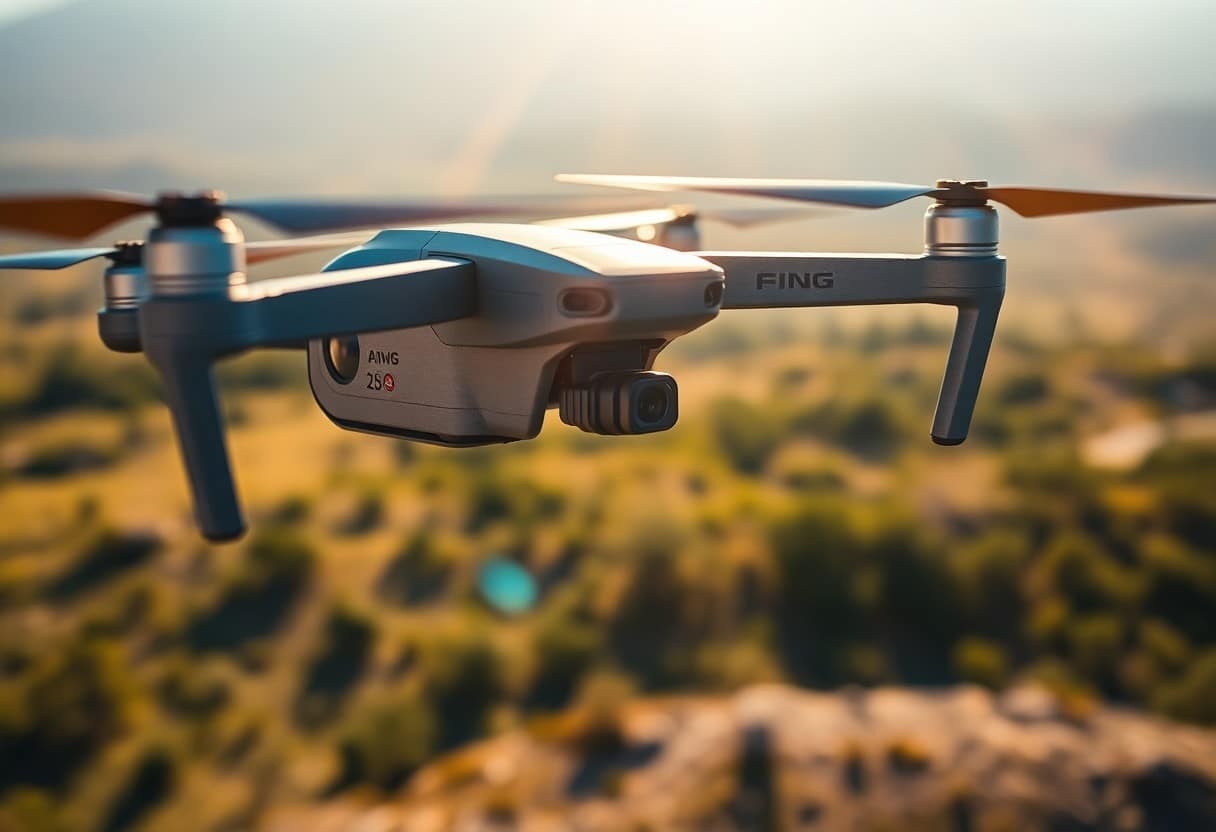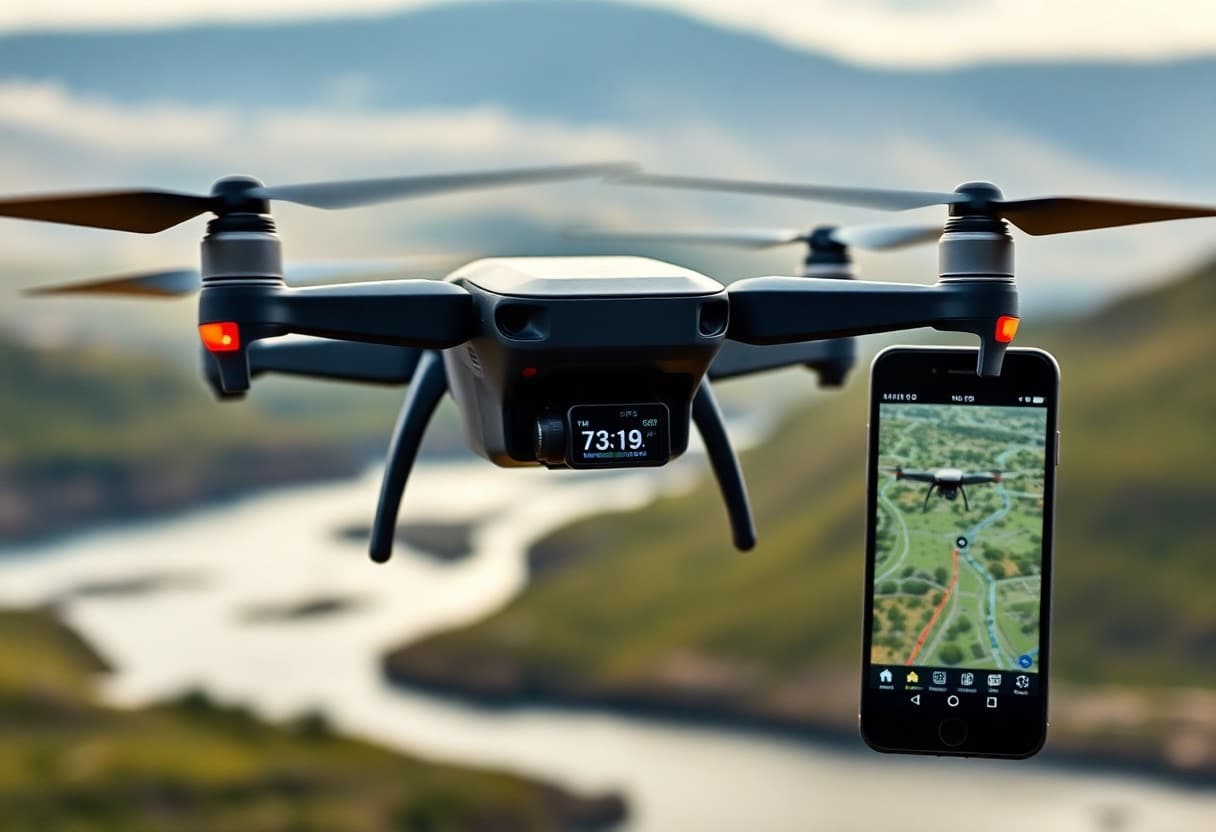What local laws and regulations should you know to operate a drone safely?
Before operating a drone, you need to know the localLaws and RegulationsTo ensure that your flying activities aresuretyrespond in singingComplianceThe. Drone regulations may vary from place to place and cover areas such as altitude limits, flight zones, and permit requirements. Following these regulations will not only protect you, but others and avoid legal consequences. Getting to know your droneSpecificationThe newest addition to your flight is the newest addition to the fleet, which gives you peace of mind.
Key Points:
- Local law regulations: Make sure you know the local drone regulations in your area.
- Flying altitude: Observe local maximum flight altitude limits to avoid violations.
- Airspace restrictions: Deconflict no-fly zones, such as airports and military zones, to avoid accidental intrusion.
- Privacy Law: Be aware of local privacy laws and avoid violating your privacy rights.
- Permit Requirements: Confirm whether special permission or registration is required to operate the drone.
- Insurance Requirements: Check if you need to insure against the liability of the drone operator.
- Operation time: Confirm legal drone flight times; night flights may be restricted in some locations.
Understanding Local Drone Laws
Before conducting drone operations, understandLocal Drone LawsIt is important to check that you are in compliance with these laws. Different jurisdictions have different regulations on drone use and you need to check that you are operating in compliance with these laws to avoid violations. You should also check regularly for updates to these regulations as the legal environment may change over time.
Federal and Local Regulations
UAV operations in the United States are regulated by the Federal Aviation Administration (FAA), but thelocal governmentmay also have their own unique regulations. This means that in addition to following federal regulations, you need to make sure you know if your city or state has any specific requirements.
Specific Local Requirements
Each region may have its own unique drone requirements, includingFlight Restrictions,License Requirementsor specific no-fly zones. You must check local regulations for requirements that may affect your operations to ensure that your drone flights are legal.
Specific local requirements may include the need to obtain a flight permit, prohibitions on flying in specific areas, and altitude restrictions that must be adhered to. For example, some cities may require drone operators to obtain a permit from local authorities before flying. Additionally, you should be aware that certain areas may prohibit flying in places where people congregate or near sensitive areas such as schools and hospitals. Make sure you understand theseSpecific requirementsIt can help you not only avoid legal trouble, but also protect the safety of others.
airspace limitations
When operating a drone, it is important to know the local airspace restrictions. Some areas may have specific flight rules or no-fly zones that you should refer to.How can GPS capabilities make your drone navigation easier and safer?for more information. Following these regulations will help you stay safe and comply with the law.
Controlled airspace
Controlled Airspace Areas (CAAs) are areas of airspace where there are specific restrictions on drone flights. In these areas, you must obtain the proper permits to fly or face possible legal consequences.
No Fly Zone
No-fly zones are special areas where any drone is prohibited, such as around critical infrastructure or densely populated areas. It is important that you comply with these zones at all times, as operating a drone in a no-fly zone can lead to serious legal issues.
No Fly ZoneThis usually includes areas around airports, military bases or certain public event locations. In these areas, drone activity is strictly monitored and you may be subject to high fines or criminal prosecution. To avoid the risk, make sure you are familiar with the no-fly zones in your location and any temporary flight restrictions to protect your drone operations.
Registration and Licensing
Understand the process of operating a drone safely in aRegisterrespond in singinglicenseIt is important that you are aware of the requirements of the local law. In accordance with local laws, you must ensure that the drone is legally registered to avoid potential legal problems and that your operation complies withSafety StandardsThe
Drone Registration Process
The process of registering a drone usually involves filling out an online application form and paying the appropriate fee. You will need to provide the serial number of the drone and other relevant information. Upon completion of the registration, you will be given a registration number that can be attached to the drone during flight so that it can be identified by the relevant authorities.
Pilot Certification Requirements
In many areas, drone operators must obtain specificPilot CertificationThis usually involves completing a certification examination and acquiring the necessary knowledge and skills to operate a drone safely. This usually involves completing a certification exam and acquiring the necessary flight knowledge and skills to safely operate a drone. Failure to comply with these requirements can lead to serious legal consequences.
take outPilot CertificationRequirements usually include attending a course, passing a theory exam and a practical test. You will need to familiarize yourself with drone operating regulations, sky laws and the ability to respond to unexpected situations. Maintaining a legal and safe operation not only protects your own safety, but also the safety of others, while avoiding any possible consequences.High finesThe
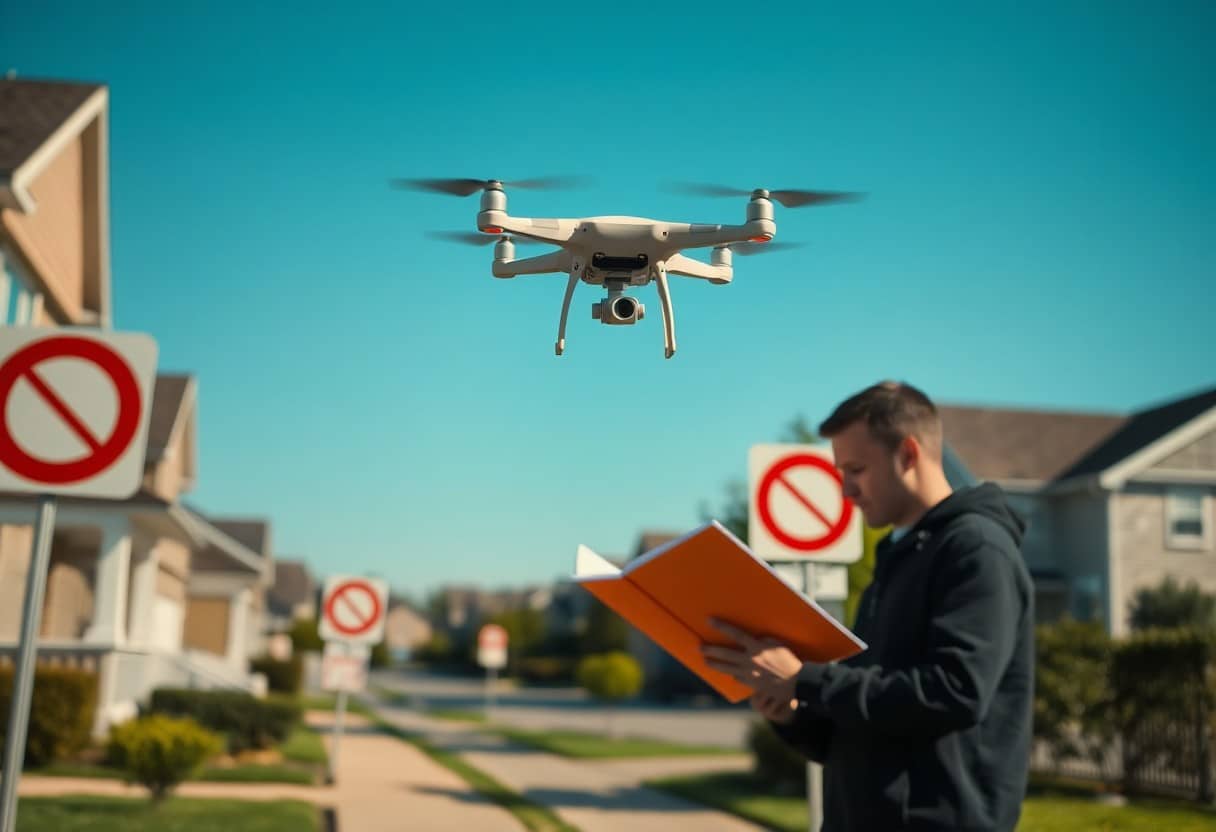
Guidance policy
When operating a drone, you must follow some basicOperating GuidelinesTo ensure safety and compliance. Knowing the local laws and regulations can avoid unnecessary legal liabilities and safety hazards. In addition, keeping the drone in your field of vision and adhering to maximum flight altitude and distance regulations are key to operational safety. Following these guidelines will help increase safety for you and those around you.
Maximum height and distance
You should be aware of the drone'sMaximum Flying Heightrespond in singingDistance LimitIn many areas, this is usually 400 feet (about 122 meters), as per FAA regulations. Before reaching this altitude, make sure you understand and follow local regulations in the interest of public safety and compliance with drone operations.
Flying close to people and property
When flying a drone, you need to pay special attention to the proximity of thePersonnel and Propertyof safety. Following regulations and maintaining a safe distance from people and buildings reduces the risk of accidents. Recognizing the privacy and safety of people when in close proximity to them will help promote good community relations.
In operations close to people and property, you should always avoid flying over dense populations or important property. First of all, this significantly reducesPotential Dangerand accidents. Secondly, obeying local laws helps you maintain a good reputation and promotes a sense of trust in the community. So, please take extra care when flying in these areas and make sure you operate at a reasonable altitude and distance to protect not only yourself, but also others and their property.
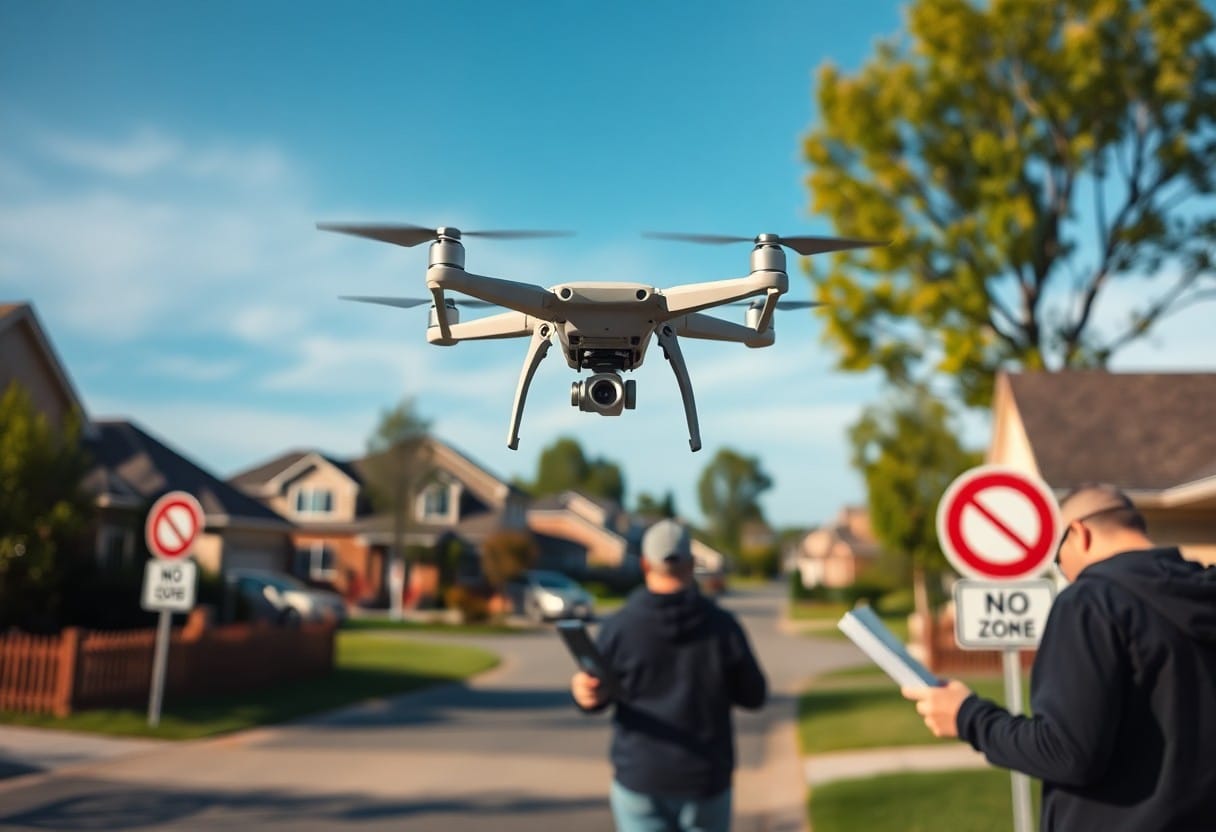
Privacy and Security Considerations
When operating a drone, you must consider the followingPrivacy and SecurityThe local laws may impose restrictions on the use of drones to ensure that they do not infringe on the privacy of others. Local laws may place restrictions on drone use to ensure that it does not violate the privacy rights of others. Learn about theseRegulation and ComplianceYou may refer to9 Essential Steps to a Successful Drone Photography ProjectThis will help you to better comply with legal requirements.
Respecting Privacy
When you drive a drone.Respect for the privacy of othersCritical. Ensure that you do not fly over private property or conduct surveillance photography to avoid infringing on other people's personal space. It is also a good idea to seek permission from local residents before filming in order to build good community relations.
Ensuring public safety
The operation of drones poses certain safety hazards. You must follow localAviation Security RegulationsAvoid flying in crowded areas, for example, and make sure the drone is in your line of sight. Also, be aware of weather conditions and other flying objects to minimize the risk of accidents.
Ensuring public safetyIt is an essential part of operating a drone. For your own safety and the safety of others, you should follow all relevant laws and regulations, including altitude restrictions and no-fly zones. Knowing and complying with these regulations will help reduce the likelihood of accidents. Also, planning and evaluating your flight path in advance can help minimize disruptions and potential hazards to others.
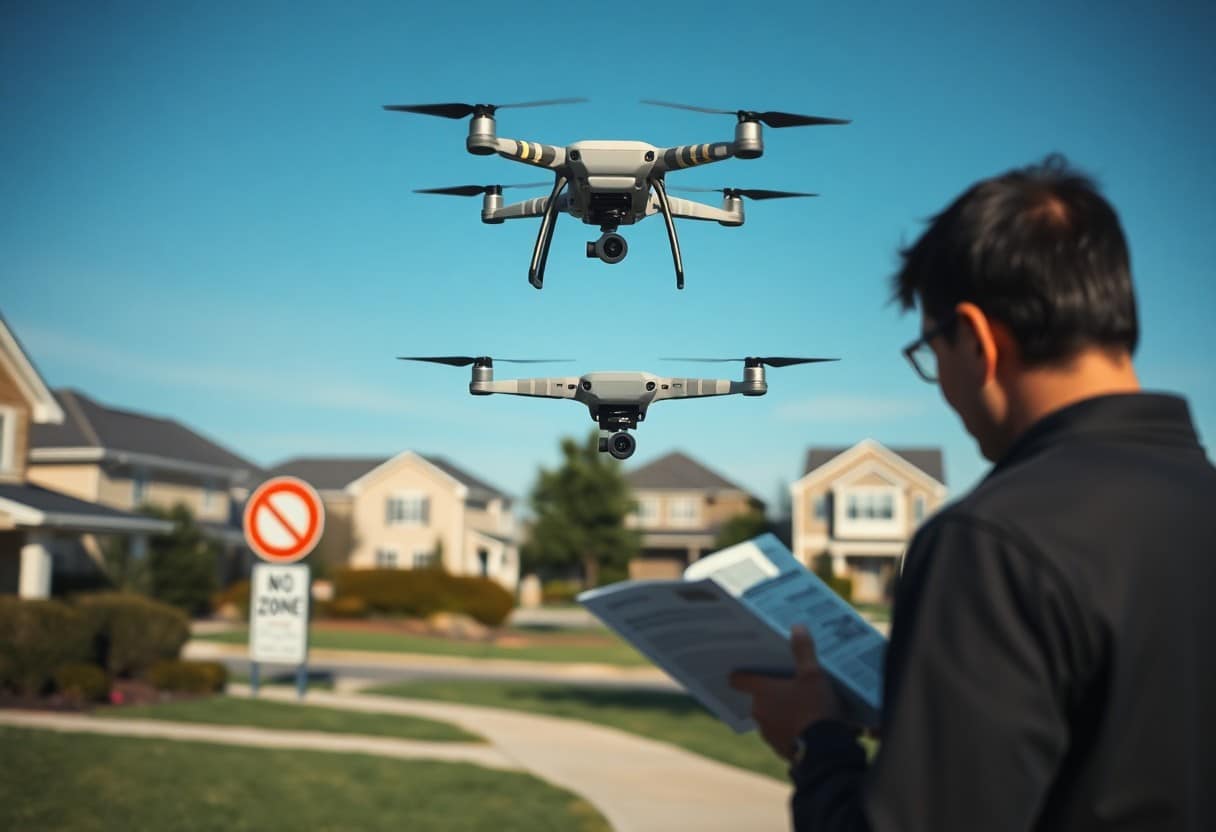
Non-compliance penalties
If you do not comply with local drone regulations, you may face seriousPenaltyand legal consequences. However, penalties vary from place to place, and you need to be aware of where you are flying and what the laws require. To learn about U.S. drone regulations, check out theHow Smooth Drone Movement Can Transform Your Aerial Footage
Fines and Legal Consequences
Failure to comply with drone laws could result in up to thousands of dollars inPenaltyIt may even trigger acriminal chargeThe penalties may vary depending on the severity of the violation. Penalties may vary depending on the severity of the violation, and you should ensure that you fully understand and comply with applicable regulations.
Reporting of non-compliance
Local legal systems often allow the public to report inappropriate drone use. Doing so can help safeguardpublic securityIt also makes drone operators aware that their behavior is being monitored.
In many areas, you can report drone violations through your local aviation authority. As soon as you become aware of a flight violation or improper operation of a drone, you should write down the information and provide it to the relevant authorities, such asTime and Placeand detailed descriptions of violations. Prompt reporting reduces accidents and promotes a safer flying environment.
Safe drone operation should pay attention to the local norms
When conducting drone operations, you must be aware of local laws and regulations to ensure safety and legality. First, verify that there are no no-fly zones or restricted airspace in the area where you are flying, and comply with flight altitude and distance requirements. Second, keep a safe distance from others to avoid damage to people or property. In addition, many jurisdictions require drone operators to have a permit or registered drone. Being aware of these regulations will not only ensure your future flying experience, but also protect yourself and others.
Frequently Asked Questions
Q: What local regulations should I know before operating a drone?
A: Before operating a drone, you should be aware of your local aviation authority's regulations on drone flights, including altitude restrictions, areas of flight (e.g., no-fly zones), and necessary registration requirements.
Q: What areas are prohibited for drone flights?
A: No-fly zones usually include the vicinity of airports, military bases, government buildings, and certain public event locations. Be sure to check your local aviation authority for a map of the no-fly zone.
Q: Do I need a specific license or certification to operate a drone?
A: Yes, some jurisdictions require specific licenses or certifications for drone operators, especially for commercial use. It is recommended to check local regulations to determine if a license is required.
Q: Where can I fly my drone?
A: You may operate the drone in a legal open area or within a designated flight area, provided that you do not interfere with the operation of other aircraft and that you comply with local laws.
Q: Are there any privacy law issues when using a drone to shoot video?
A: Yes, drone photography involves privacy, you should obtain the consent of the person being photographed before filming and follow local privacy laws to avoid legal disputes.
Q: Do I need liability insurance to operate a drone?
A: Although not all jurisdictions require drone liability insurance by law, it is highly recommended that you consider purchasing it to protect yourself and others in the event of an accident.
Q: How can I be informed of the latest drone regulation changes?
A: To get the most up-to-date UAV regulations, it is recommended to subscribe to your local aviation authority's bulletins, visit official websites, or attend UAV-related community meetings and seminars.
